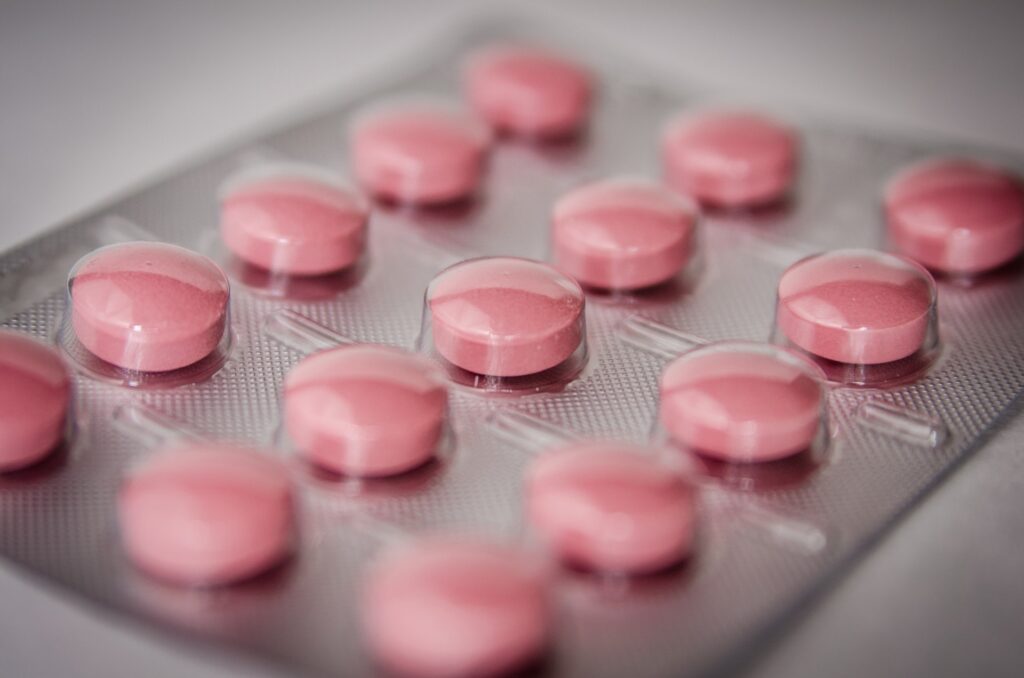Gabapentin is a commonly prescribed medication used to treat various conditions, including neuropathic pain, epilepsy, and restless leg syndrome. While it is generally well-tolerated, one common side effect reported by users is bloating.
Bloating refers to the uncomfortable feeling of fullness and swelling in the abdomen. In this article, we will discuss strategies to minimize bloating caused by gabapentin use.
- Gabapentin’s Impact on Gastrointestinal Function: Gabapentin has been shown to influence gastrointestinal function, such as reducing rectal mechanosensitivity and increasing rectal compliance in patients with irritable bowel syndrome (Lee, Kim, & Cho, 2005). This indicates its potential role in altering gut sensitivity and motility, which might contribute to bloating.
- Effects on Functional Dyspepsia: A study found that gabapentin improved symptoms of functional dyspepsia in patients, though it didn’t significantly affect bloating (Staller et al., 2019). This suggests that while gabapentin can influence some gastrointestinal symptoms, its effect on bloating is not clear-cut.
Adjusting Dosage

One of the first steps to address bloating from gabapentin is to consult with your healthcare provider about adjusting the dosage.
Sometimes, a lower dosage can help reduce the severity of side effects, including bloating. However, it is crucial not to make any changes to your medication regimen without proper medical guidance.
Consult a healthcare professional to discuss the possibility of adjusting the dosage of gabapentin. A lower dosage may help alleviate the bloating while still providing effective symptom management.
Dietary Modifications
Certain dietary modifications can help alleviate bloating symptoms. Consider incorporating the following strategies:
- Increase Fiber Intake: Consuming an adequate amount of fiber can help regulate bowel movements and reduce bloating. Include more fruits, vegetables, whole grains, and legumes in your diet.
- Avoid Gas-Producing Foods: Some foods can cause excess gas production, leading to bloating. These may include carbonated drinks, beans, lentils, broccoli, cabbage, onions, and garlic. Experiment with your diet and identify foods that trigger bloating, then try to limit or avoid them.
- Eat Smaller, Frequent Meals: Instead of consuming large meals, try eating smaller, more frequent meals throughout the day. This can help prevent overeating and reduce bloating.
- Stay Hydrated: Drinking an adequate amount of water can help maintain regular bowel movements and prevent constipation, which can contribute to bloating. Aim for at least eight glasses of water per day.
Physical Activity

Engaging in regular physical activity can help improve digestion and reduce bloating. Physical movement stimulates the muscles in your gastrointestinal tract, aiding in the proper movement of food through your system. Consider incorporating activities such as walking, jogging, cycling, or yoga into your routine.
Probiotics
Probiotics are beneficial bacteria that can help promote a healthy gut microbiome. Taking probiotic supplements or consuming foods rich in probiotics, such as yogurt, kefir, sauerkraut, and kimchi, may help alleviate bloating symptoms by improving digestion.
Over-the-Counter Medications
In some cases, over-the-counter medications such as simethicone can provide temporary relief from bloating. Simethicone helps break down gas bubbles in the digestive tract, reducing bloating and discomfort.
How simethicone can help
- Efficacy and Safety: Simethicone has been found to be effective and safe for the treatment of functional bloating. It was well tolerated by study subjects, with no adverse effects reported in comparison to other treatments (Burta et al., 2018).
- Combination with Other Treatments: It has been used in combination with other agents, such as antispasmodics and probiotics, showing improvement in bloating and other IBS symptoms (Urgesi et al., 2014).
- Effectiveness in Different Conditions: While simethicone has been effective in various conditions involving bloating and gas, it’s important to note that its impact can vary depending on the specific gastrointestinal issue and individual patient characteristics.
- Reduction of Bloating: Simethicone has been shown to effectively reduce bloating in various clinical settings, providing relief for patients suffering from gas-related discomfort (Moolla et al., 2019).
Monitoring Other Medications
If the individual is taking other medications, it’s important to monitor their effects, as some medications may contribute to bloating when taken with gabapentin.
Certain types of medications, when taken alongside gabapentin, might potentially exacerbate gas or bloating due to their individual side effects or interactions. These include:
- NSAIDs (Nonsteroidal Anti-inflammatory Drugs): Drugs like ibuprofen can cause gastrointestinal irritation, leading to symptoms like gas and bloating.
- Opioids: Medications like hydrocodone or oxycodone, often used for pain, can cause gastrointestinal side effects, including bloating.
- Anticholinergics: Medications with anticholinergic properties can slow down the digestive process, potentially causing bloating.
- Antidepressants: Certain antidepressants can affect gut motility and lead to gastrointestinal symptoms.
- Calcium Channel Blockers: Used for high blood pressure, these drugs can also impact gastrointestinal motility.
References
- Burta, O., Iacobescu, C., Mateescu, R., Nicolaie, T., Tiuca, N., & Pop, C. (2018). Efficacy and safety of APT036 versus simethicone in the treatment of functional bloating: a multicentre, randomised, double-blind, parallel group, clinical study. Translational Gastroenterology and Hepatology, 3, 72.
- Urgesi, R., Casale, C., Pistelli, R., Rapaccini, G., & De Vitis, I. (2014). A randomized double-blind placebo-controlled clinical trial on efficacy and safety of association of simethicone and Bacillus coagulans (Colinox®) in patients with irritable bowel syndrome. European Review for Medical and Pharmacological Sciences, 18(9), 1344-1353.
- Moolla, M., Dang, J., Shaw, A., Dang, T., Tian, C., Karmali, S., & Sultanian, R. (2019). Simethicone decreases bloating and improves bowel preparation effectiveness: a systematic review and meta-analysis. Surgical Endoscopy, 33, 3899-3909.

M.D. Orthopaedic Pain Management - University of São Paulo

